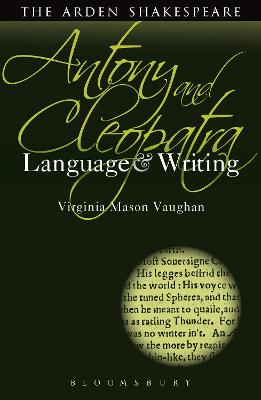Arden Student Skills: Language and Writing
1 total work
Antony and Cleopatra: Language and Writing
by Prof. Virginia Mason Vaughan
Published 19 November 2015
Reading Antony and Cleopatra is particularly challenging because of Shakespeare's masterful embodiment of Rome and Egypt's contrasting worlds in language, structure, and characterization.
Instead of seeing the interaction of Roman and Egyptian perspectives in Antony and Cleopatra as a type of double image of reality that changes as one moves from one location to another, students often find themselves compelled to pick sides. The more romantic opt for Cleopatra as the most sympathetic character, while the pragmatists dismiss her lifestyle as self-indulgent. The central challenge in reading this play, in other words, is to resist the compulsion to take sides and, instead, to adopt a 'both-and' point of view rather than an 'either-or' choice. The play's central binary - Rome vs. Egypt - is deeply embedded in its language and structure, yet the play consistently complicates our view of either side. The book encourages students to think outside the binary box, to understand, and to celebrate, Shakespeare's exploitation of the multivalent nature of language.
Instead of seeing the interaction of Roman and Egyptian perspectives in Antony and Cleopatra as a type of double image of reality that changes as one moves from one location to another, students often find themselves compelled to pick sides. The more romantic opt for Cleopatra as the most sympathetic character, while the pragmatists dismiss her lifestyle as self-indulgent. The central challenge in reading this play, in other words, is to resist the compulsion to take sides and, instead, to adopt a 'both-and' point of view rather than an 'either-or' choice. The play's central binary - Rome vs. Egypt - is deeply embedded in its language and structure, yet the play consistently complicates our view of either side. The book encourages students to think outside the binary box, to understand, and to celebrate, Shakespeare's exploitation of the multivalent nature of language.
